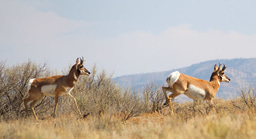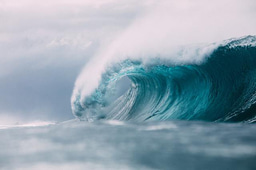The Achilles Heel of Conservation

Conservation globally is a challenging battle. Movements against climate change, plastic pollution and deforestation in the Amazon are on the rise. So too are ground-breaking research and futuristic interventions, and yet the natural world is burning. Nowhere else is this more evident and an uphill battle than in Africa and this is why.
I am an aspirant ornithologist and a conservation leader pursing a masters in Conservation Biology, one of only two black people in my class. On my first day of joining the class, while getting a coffee at the kitchenette, a friendly black South African passed the comment, “so you’re with the rich kids” after I had told her what department I was from. Unfortunately, this is the prevailing stereotype not in South Africa but everywhere else. Conservation is a luxury, pursued by the rich and a field for the privileged. There is a huge gap and a disconnect; black people in Africa have accepted and now believe that the love of nature and wildlife is a “white thing” and white people believe black people do not love or know as much as they could about nature and wildlife. There are few exceptions and places where this is changing but this is the prevailing system and has been since colonial times when parks were fortresses to protect nature from black communities that had lived with it in harmony for centuries before. The status quo cannot persist because it begs the question: who are we conserving Africa for if the majority is not part of or interested in the solution.
Why is conservation action yielding results in America and Europe far better than it is in Africa, where there is far greater opportunity, more protected land, more wildlife and more funds poured into projects? Other continents have real conservation wins, from species coming back from the brink of extinction to polluted river systems being restored and attitudes of people changing. It is worth noting that these wins are few and far between, but they are wins nonetheless. Africa, on the other hand, deals with more poaching and environmental degradation with every year that passes. Africa has the youngest and fastest-growing population in the world and what we do today will set the pace and trajectory for the continent’s development. A fundamental problem exists: conservation in its current form will not be effective in Africa. Impactful and effective conservation efforts cannot exclude systems thinking and behavioural change. It takes a lot more than scientific brilliance to influence behavioural change, it takes passion and dedication to see that the problem is fixed (provided the real problem is known).
For many of us, Africa was never a choice or an option on the map. Africa is not a dream of charismatic wildlife, golden savannas and swampy jungles with elusive creatures. It is a reality, not a dream we have attained; Africa chose us and it is the only option there is, as we have no place else. Going to another continent, having a successful scientific career and solving the problems there, is not something we can aspire to, afford or even reach for. It is not realistic unless you want to be a nurse or be relegated into the care system of those continents to make good money to send home. However, for hundreds in the west, Africa is a new chapter in their lives and it is within reach. It is affordable and they can pick any country or species to “find themselves or their passions in.” They find a job market that is ready and willing to assimilate them instead of building capacity and interest where it is needed. I speak from experience. A summer internship for a British young lady lands her a managerial research position over a local graduate who interned in the same place for a year but has to give tours and host visitors to the facility. Organisations running volunteer projects targeted at giving internationals a green-tourism experience and university credits, while priced too high for a local student to afford and participate in. Even I tried to join these volunteer programs. Despite my endurance, I realised they would not accept me if I did not pay the amount upfront in American dollars, never mind the knowledge I had to offer or gain.
The conservation industry is not economically conducive for black people, more so in the African context. We all know that money should not be your motivator to get into this industry. At any rate, most people are not driven into this field for the money they can make. This narrative, however, makes it seem like one cannot make a decent living from a career in conservation. But this is not true, as I have seen all around me, many professionals I know and interact with have even a better living standard than most people I know. There is a ceiling in conservation and everywhere you go it is white. The opportunities to grow professionally are minimal, at least at the rate of our counterparts. Everyone knows that hardworking graduate friend who has been an intern for years working for peanuts. We all know how much harder we have to work to make the benchmark and qualify. Conservation is not a cheap field to be in (funny enough), it is expensive to get the right and appropriate gear, clothing and be at the right places. I have been to week-long conferences were meal tickets were R200, that in itself excludes an entire demographic. It almost seems like Africa is the perfect destination for these meetings, just not the destination for the resolutions of these conferences. These are just a few examples that show how conservation is not yet inclusive, considerate and attune to the black African experience.
A recent commentary on the South African Journal of Science titled “Why are black South African students less likely to consider studying biological sciences?” was published and has been stirring a lot of negative reactions from black people I know all over the country. The problem is known and fortunately, in our lifetime, spaces are being created for these conversations to be had. There have also been peer-reviewed publications reporting the racial bias that exists. It is important to get the voices of Africans themselves in these conversations. It cannot be another situation of Africa’s history told from a non-African worldview. A simple example; the recently published commentary asks black students their pet ownership history; if they believe people evolved from apes and other questions that do not relate in any way to the black African experience. The study then uses that as a measure of why one would choose or chose not to pursue a career in conservation. Questions about social inequality versus the environment and national parks versus giving land to the poor are asked to members of a black community with high levels of poverty, homelessness and a national debate on land ownership as a decider of whether or not they value wildlife. Why not ask how old they were when they first visited a national park?
Even in the most integrated campuses, people do not relate to or understand the black experience because of superficial interactions that occur every day. Black people keep filling a role that makes them belong and white people stay continually believing that their lived experience, like relationships with pets (other than wealth and financial security), is the standard and everyone else relates to the world and makes decisions based on the same worldviews. A lot needs to be done, ask your black colleagues how. They know best why biological sciences are least chosen by those like themselves. They know how to make the space more inclusive because they each have stories and personal experiences. Much like the time in my internship when my initiative of having local children come to the facility where I worked was diverted. It was meant to be a children’s bird conservation club that I would run and create material for, to bring different groups of children together. My boss told me at the last minute that, for security reasons, she would be the one to invite the children (via email) and was concerned the local children would use the opportunity to tell their parents about the property so they would come and rob them at night. This property had an electrified fence, a high gate with codes and numerous dogs and these kids who were, I suppose, taught by their parents to take advantage of such unexpected invitations to learn about nature, would not miss the chance to figure a way to break into this fortress.
Ask your colleagues how to do things better, how to be better and relevant for the times because communities out there are excluded this way from conservation. Like Professor Drew Lanham just said during a webinar, “if you do not have time for my issues, I do not have time for yours.” Most conservationists do not even bother to learn local languages or pronounce things right and they assume their surveys with people of a different language and culture are not on a superficial level. Almost all black folks in conservation identify as science communicators because we have to double up for this role and educate our community the way we know works. I have mentored, presented, taught and trained countless individuals who never owned and cuddled pets and I have seen their lives change literally from one encounter or chat about vulture conservation. All this I do without a budget or benefactors, without colourful handouts and pamphlets. People do not care how much you know until they know how much you care. Conservation needs to decide what the primary focus is, publications and “discoveries in Africa?” travelling and working in remote and picturesque places? I believe this should take second place to solving the problems that will destroy it all for future generations. Like Pathisa Nyathi once said to an audience at a vulture talk, “keep frowning on African culture and your birds will be driven extinct by what you call myths and superstitions. Beliefs are as real as their consequences.”
The researcher who fell in love with Africa and her wildness from National Geographic films or at zoos and shows will have a different commitment to the problem than the one who knows the hunger of an elephant raid, one who herded cattle in a village were lions prowl at night and one who knows the true meaning of your life and next meal depending on the environment you live in.





Please sign in or register for FREE
If you are a registered user on WildHub, please sign in
Great article that speaks the truth! I am not 100 percent sure I agree with the comment about Europe and America. Europe wiped out most of its biodiversity years ago and the US has one of the highest deforestation rates across the globe....
Hi Lena, I see what you mean. But what I was referring to was the rates of successful outcomes in conservation action, changing systems and importantly, winning communities over to conservation. Yes, most of the megafauna has been depleted and lost partly due to hunting cultures and development and could be the reason for the exodus to and interest in Africa for most western conservationists and researchers. But what would seem a bare and lacking side of the world in biodiversity is achieving more in its interventions than the biodiversity-rich global south. there is of course a lot more factors at play too. thank you for your comment.
Thanks Merlyn - I learnt a lot from your article. Would love to hear more on this subject and how the conservation community can start addressing the problems you mention - think this would make a greart panel discussion?
thank you, Adam. Very true, a discussion is really what I intended with this sharing when I penned it down. Issues of race and the effects of inequality in conservation have been very taboo to talk about and as both an affected and aware person, I felt it was imperative to take the first step and risk to initiate these conversations.
Hi Merlyn, I really enjoyed your post and would love to talk more about engaging black people in conservation.
I work for Chester Zoo as Community Engagement Manager. We would like to do more to make sure that our activities are inclusive and realise that this will mean proactively engaging under represented audiences, addressing barriers to engagement etc.
The initial focus for this work is UK but I also support Chester Zoo's international field partners with their conservation education initiatives.
I can't see how to message directly via WildHub but if you're willing to get in touch so we can talk that would be really appreciated - h.brooks@chesterzoo.org
Hi Hannah, thank you, I will be in touch
I really enjoyed reading your post, I wish I could write so eloquently. I am white British and middle class - I studied Zoology in Glasgow, Scotland and the demographic was not diverse, something that worried me. There were few people from lower socio-economic groups and not a single person of colour in my cohort. It improved a little in postgraduate groups but still skewed. Honestly it scares me how uniform the conservation and environmental fields can be but the odds are stacked against anyone who doesn't have the means to support themselves whilst volunteering to get the experience and doesn't have the social capital to get experience in the field. How can we hope to slow the loss of biodiversity without actively including people from all races and countries? How can we find solutions without letting those with different ideas and backgrounds lead? Please keep writing, I want to hear from more voices like yours.
Merlyn, Thank you for your article, I really enjoyed reading it. I think you points are so true and it has been an issue that has bothered me for a while. I am white, working class and Scottish. 8 years ago I was studied an MSc in London in environmental politics, which i didn't not finish, (another story), while there i took the opportunity to go to as many conservation events as i could, which even with a student discount were expensive. One event was at London Zoo and was a 2 day event about 'Protecting more Places', essentially creating more national parks. the event had speakers from 4 continents, working on many different projects, representing universities, governments and NGO's. I tried my hardest to ask a question all day, but the usual suspects of the 'everyone knows everyone' world of conservation got the say but not an unknown student. In the end i went up to one of the organisers and asked them " why they had no single person who was born and raised in any of the projects nations represent the work being done in their country, why had they failed to included the demographic of nations the predominately white western lead projects were running in other countries", the answer i got was an embarrassed and shameful 'they can't afford it', pathetic.
i have never taken for granted my unequal access to pick and choose a country that i can access and afford to do unpaid volunteer work for but i hope i have always respected the knowledge, realities and concerns of the local people. I will hopefully be back in Indonesia very soon, where my partner (he's Indonesian) and i can work in conservation together, with the local people, for them and nature and for us.
Sorry for the long winded comment, i would be very keen to see talk more about this issue and come up with ideas about how conservation can be accessible to all people. thanks Nicola
Thank you Nicola for your story, I read it all and I was touched. I am very hopeful because our generation is different. We have inherited a racist unequal unfair system and we do not like it. More of us are questioning it and wanting to move the community forward to effective and inclusive futures. I am glad and hopeful that there are more people like you noticing and asking these important questions.